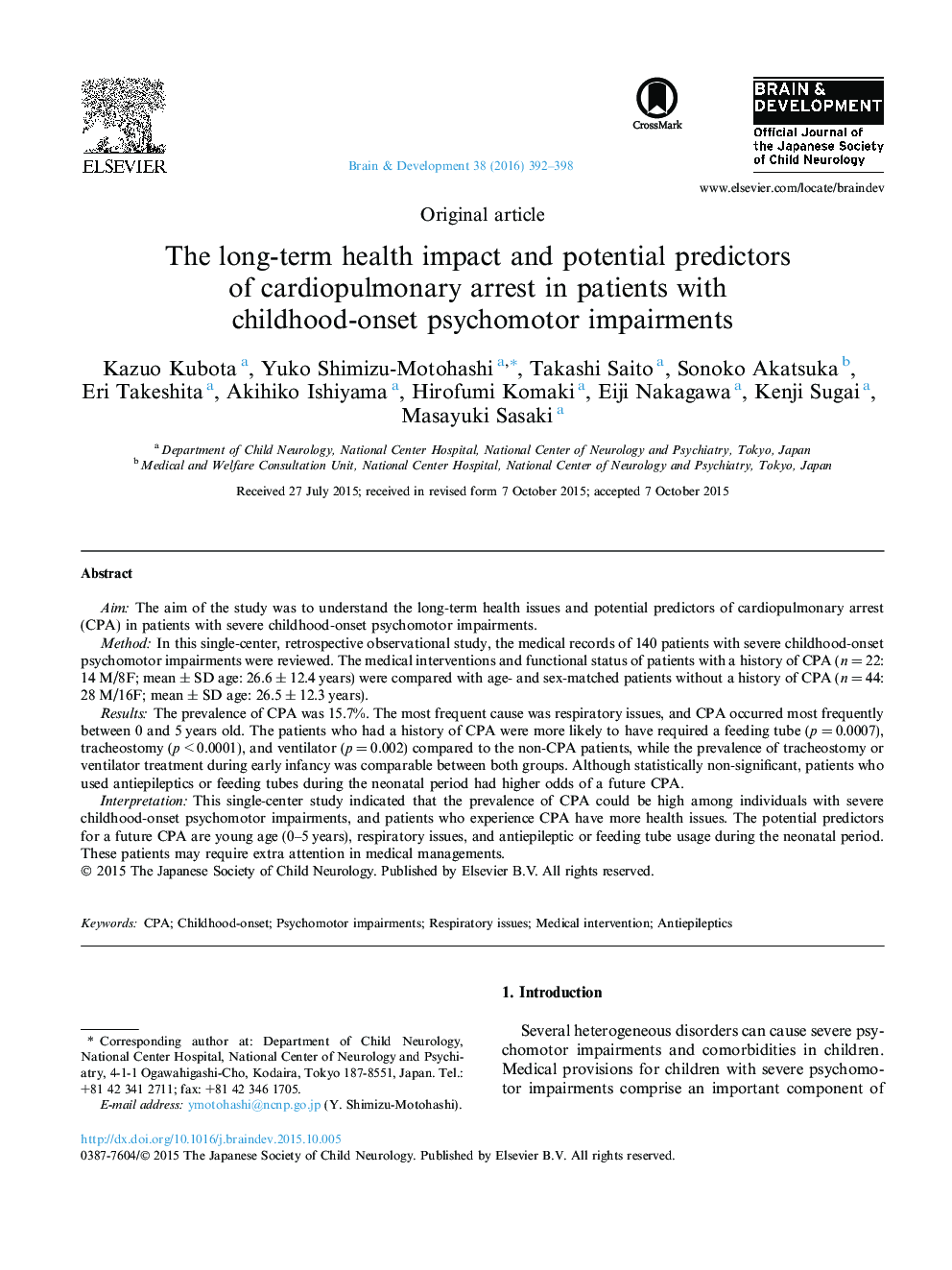| Article ID | Journal | Published Year | Pages | File Type |
|---|---|---|---|---|
| 3036515 | Brain and Development | 2016 | 7 Pages |
AimThe aim of the study was to understand the long-term health issues and potential predictors of cardiopulmonary arrest (CPA) in patients with severe childhood-onset psychomotor impairments.MethodIn this single-center, retrospective observational study, the medical records of 140 patients with severe childhood-onset psychomotor impairments were reviewed. The medical interventions and functional status of patients with a history of CPA (n = 22: 14 M/8F; mean ± SD age: 26.6 ± 12.4 years) were compared with age- and sex-matched patients without a history of CPA (n = 44: 28 M/16F; mean ± SD age: 26.5 ± 12.3 years).ResultsThe prevalence of CPA was 15.7%. The most frequent cause was respiratory issues, and CPA occurred most frequently between 0 and 5 years old. The patients who had a history of CPA were more likely to have required a feeding tube (p = 0.0007), tracheostomy (p < 0.0001), and ventilator (p = 0.002) compared to the non-CPA patients, while the prevalence of tracheostomy or ventilator treatment during early infancy was comparable between both groups. Although statistically non-significant, patients who used antiepileptics or feeding tubes during the neonatal period had higher odds of a future CPA.InterpretationThis single-center study indicated that the prevalence of CPA could be high among individuals with severe childhood-onset psychomotor impairments, and patients who experience CPA have more health issues. The potential predictors for a future CPA are young age (0–5 years), respiratory issues, and antiepileptic or feeding tube usage during the neonatal period. These patients may require extra attention in medical managements.
